The University of Chicago and Caltech Conference on AI+Science
Sponsored by the Margot and Tom Pritzker Foundation
-
Overview
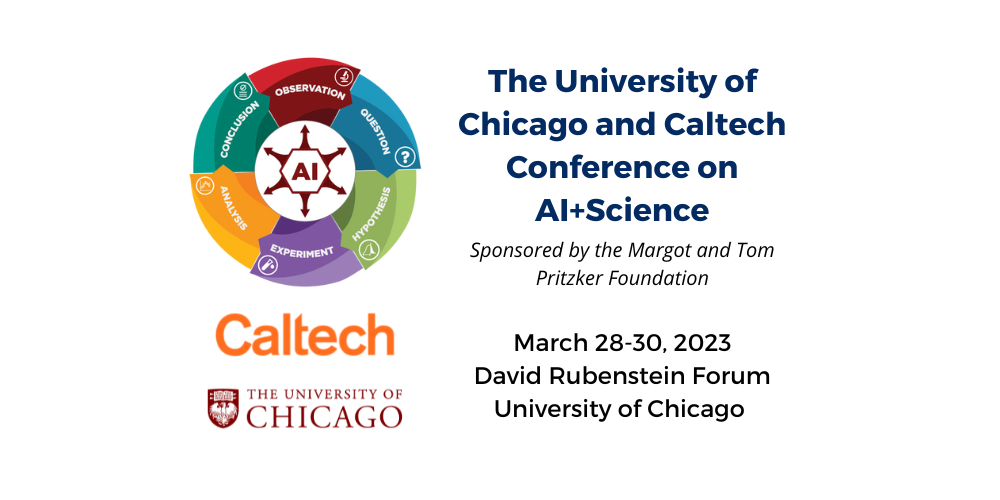
Update: Conference materials are now available at the presentation resources link and the DSI YouTube Conference Playlist
The University of Chicago and the California Institute of Technology are centers of gravity for the study, application, and use of AI and Machine Learning to enable scientific discovery across the physical and biological sciences, advancing core AI principles and training a new generation of interdisciplinary scientists. To both advance this scientific and technical pursuit and demonstrate the leadership of UChicago and Caltech in this space, we will host The University of Chicago and Caltech Conference on AI+Science, Sponsored by the Margot and Tom Pritzker Foundation, in Chicago from March 28 – 30, 2023. This event will bring together an elite and diverse cohort of leading researchers in core AI and domain sciences to lead conversations and drive partnerships that will shape future inquiry, industry investment, and entrepreneurial opportunities.
The event will take place at the David Rubenstein Forum at the University of Chicago.
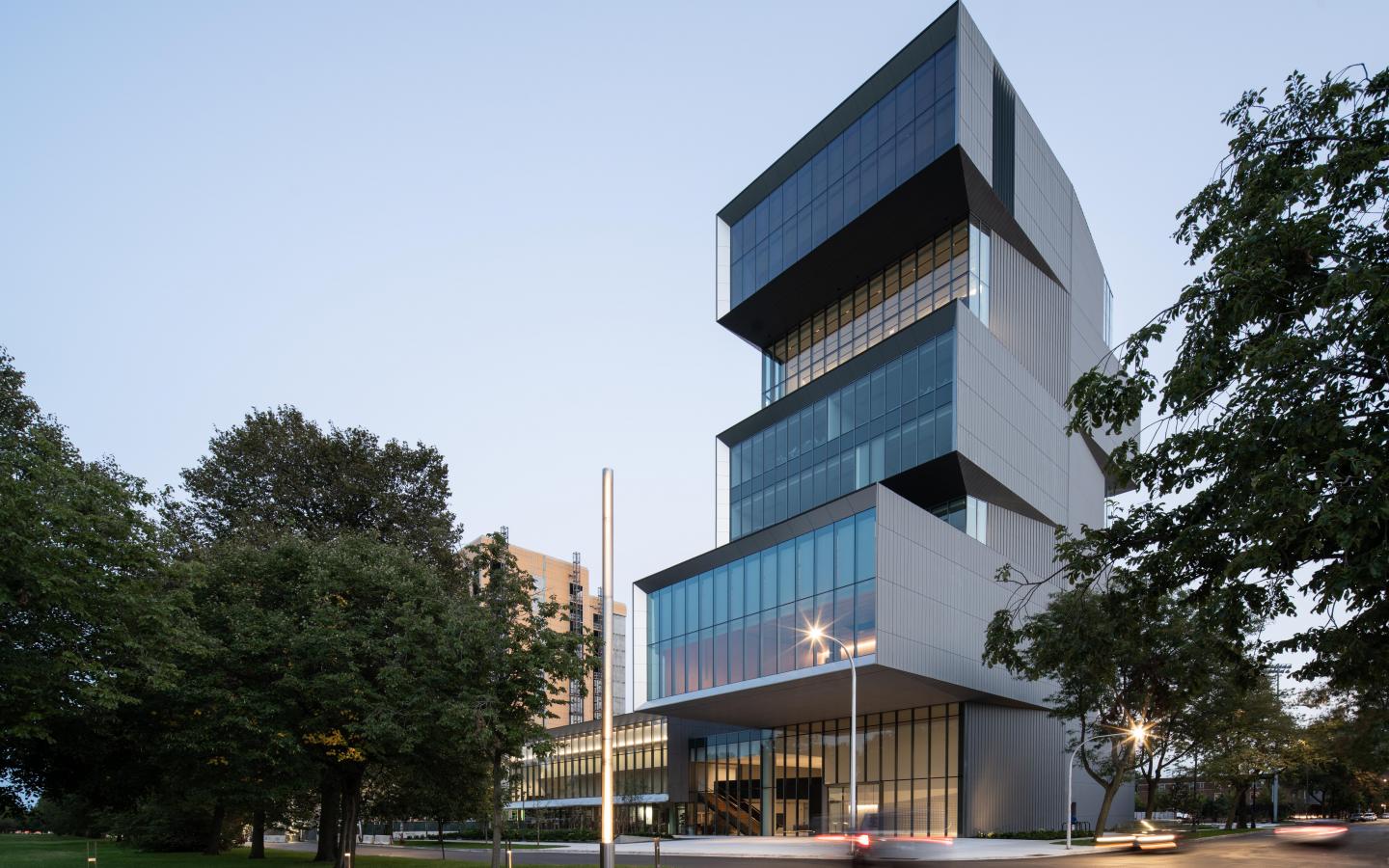
Questions? Contact data-science@uchicago.edu
Organizing Committee
-
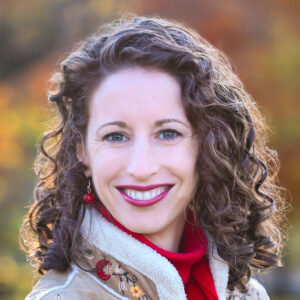
Rebecca Willett
Faculty Director of AI, Data Science Institute; Professor, Statistics, Computer Science, and the College -
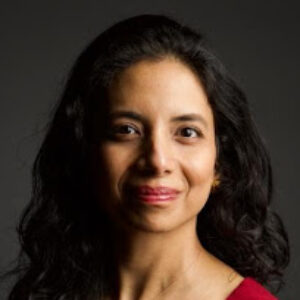
Anima Anandkumar
Bren Professor at Caltech and Senior Director of AI Research at NVIDIA -

Juan de Pablo
Executive Vice President for Science, Innovation, National Laboratories, and Global Initiatives, University of Chicago -
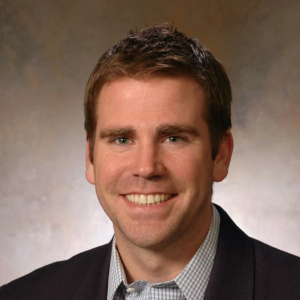
David Miller
Associate Professor, Dept. of Physics, Enrico Fermi Institute, and the College -
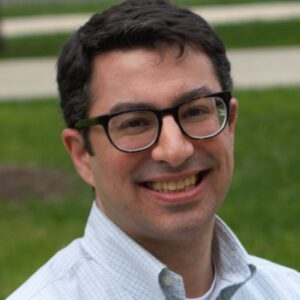
Aaron Dinner
Professor of Chemistry and Deputy Dean of the Physical Sciences Division -
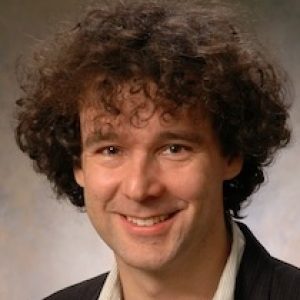
Risi Kondor
Associate Professor, Department of Computer Science, Department of Statistics, Computational and Applied Mathematics Initiative (CAMI) -
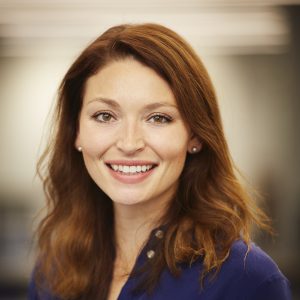
Julia Lane
Assistant Vice President for Science, University of Chicago -
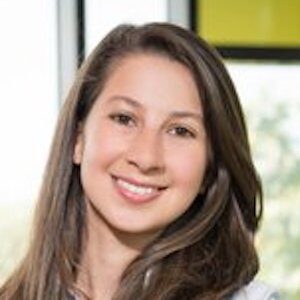
Katie Bouman
Assistant Professor of Computing and Mathematical Sciences, Electrical Engineering and Astronomy; Rosenberg Scholar; Investigator, Heritage Medical Research Institute -
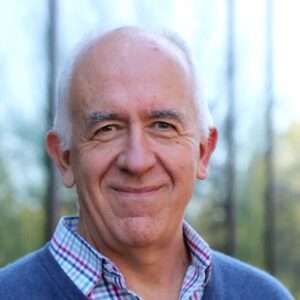
Pietro Perona
Allen E. Puckett Professor of Electrical Engineering
Rebecca Willett is a Professor of Statistics and Computer Science at the University of Chicago. She completed her PhD in Electrical and Computer Engineering at Rice University in 2005 and was an Assistant then tenured Associate Professor of Electrical and Computer Engineering at Duke University from 2005 to 2013. She was an Associate Professor of Electrical and Computer Engineering, Harvey D. Spangler Faculty Scholar, and Fellow of the Wisconsin Institutes for Discovery at the University of Wisconsin-Madison from 2013 to 2018. Prof. Willett received the National Science Foundation CAREER Award in 2007, was a member of the DARPA Computer Science Study Group 2007-2011, and received an Air Force Office of Scientific Research Young Investigator Program award in 2010. Prof. Willett has also held visiting researcher positions at the Institute for Pure and Applied Mathematics at UCLA in 2004, the University of Wisconsin-Madison 2003-2005, the French National Institute for Research in Computer Science and Control (INRIA) in 2003, and the Applied Science Research and Development Laboratory at GE Medical Systems (now GE Healthcare) in 2002. Her research interests include network and imaging science with applications in medical imaging, wireless sensor networks, astronomy, and social networks. She is also an instructor for FEMMES (Females Excelling More in Math Engineering and Science; news article here) and a local exhibit leader for Sally Ride Festivals. She was a recipient of the National Science Foundation Graduate Research Fellowship, the Rice University Presidential Scholarship, the Society of Women Engineers Caterpillar Scholarship, and the Angier B. Duke Memorial Scholarship.
Anima Anandkumar is Bren Professor at Caltech and Senior Director of AI Research at NVIDIA. She received her B.Tech from the Indian Institute of Technology Madras, and her Ph.D. from Cornell University. She did her postdoctoral research at MIT and an assistant professorship at the University of California Irvine. She has received several honors such as the IEEE fellowship, Alfred. P. Sloan Fellowship, NSF Career Award, and Faculty Fellowships from Microsoft, Google, Facebook, and Adobe. She is part of the World Economic Forum’s Expert Network.
As the Executive Vice President for Science, Innovation, National Laboratories, and Global Initiatives, Juan de Pablo helps drive and support the expanding reach of the University’s science, technology, and innovation efforts, along with their connection to policy and industry. He identifies and shapes emerging strategic scientific and technological initiatives, and provides oversight of entrepreneurship and innovation activities at the University’s Polsky Center for Entrepreneurship and Innovation. He also works with faculty, deans, and administrators to build global academic partnerships and international research collaborations while overseeing the University’s international centers. Juan de Pablo provides leadership for the University’s stewardship of two U.S. Department of Energy National Laboratories — Argonne and Fermilab — as institutions to advance science and technology in support of the nation’s interest. He collaborates with other leaders in research and innovation to build programs and links between and among the national laboratories and the University, as well as the Marine Biological Laboratory. A prominent molecular engineer, de Pablo focuses his research on polymers, biological macromolecules such as proteins and DNA, glasses, and liquid crystals, a diverse class of materials widely used in many fields of engineering.
David Miller’s research focuses on answering open questions about the fundamental structure of matter. By studying the quarks and gluons -—the particles that comprise everyday protons and neutrons —produced in the energetic collisions of protons at the Large Hadron Collider (LHC) at CERN in Geneva, Switzerland, Miller conducts measurements using the ATLAS Detector that will seek out the existence of never-before-seen particles, and characterize the particles and forces that we know of with greater precision. Miller’s work into the properties and measurements of the experimental signatures of these quarks and gluons –or jets” –is an integral piece of the puzzle used in the recent discovery of the Higgs bosons, searches for new massive particles that decay into boosted top quarks, as well as the hints that the elusive quark-gluon-plasma may have finally been observed in collisions of lead ions.
Besides studying these phenomena, Miller has worked extensively on the construction and operation of the ATLAS detector, including the calorimeter and tracking systems that allow for these detailed measurements. Upgrades to these systems involving colleagues at Argonne National Laboratory, CERN, and elsewhere present an enormous challenge and a significant amount of research over the next several years. Miller is also working with state-of-the art high-speed electronics for quickly deciphering the data collected by the ATLAS detector.
Miller received his PhD from Stanford University in 2011 and his BA in Physics from the University of Chicago in 2005. He was a McCormick Fellow in the Enrico Fermi Institute from 2011-2013.
Risi Kondor is an Associate Professor in the Department of Computer Science, Statistics, and the Computational and Applied Mathematics Initiative at the University of Chicago. He joined the Flatiron Institute in 2019 as a Senior Research Scientist with the Center for Computational Mathematics. His research interests include computational harmonic analysis and machine learning. Kondor holds a Ph.D. in Computer Science from Columbia University, an MS in Knowledge Discovery and Data Mining from Carnegie Mellon University, and a BA in Mathematics from the University of Cambridge. He also holds a diploma in Computational Fluid Dynamics from the Von Karman Institute for Fluid Dynamics and a diploma in Physics from Eötvös Loránd University in Budapest.
Julia Lane is the Executive Director for Research Partnerships & Strategy, responsible for shaping and executing the strategic vision of DSI, building new research partnerships and outreach strategies to foster interdisciplinary collaborations, and ensuring that the University continues to broaden applications of data science and computing approaches.
-
-
Speakers
-

Anima Anandkumar
Bren Professor at Caltech and Senior Director of AI Research at NVIDIA -
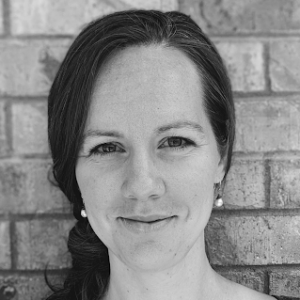
Elizabeth Barnes
Professor of Atmospheric Science at Colorado State University -
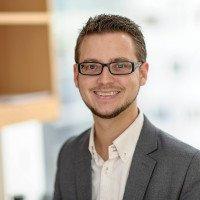
John Chodera
Associate Member at Sloan Kettering Institute for Cancer Research -

Jai Das
Partner and Co-Founder, Sapphire Ventures -

Juan de Pablo
Executive Vice President for Science, Innovation, National Laboratories, and Global Initiatives, University of Chicago -

Aaron Dinner
Professor of Chemistry and Deputy Dean of the Physical Sciences Division -

Andrew Feldman
CEO & Co-Founder, Cerebras Systems -

Andrew Ferguson
Associate Professor of Molecular Engineering -
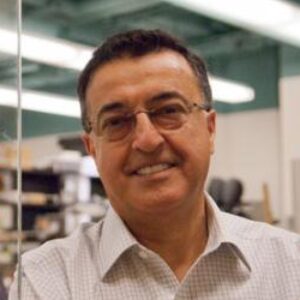
Morteza (Mory) Gharib
Hans W. Liepmann Professor of Aeronautics and Bioinspired Engineering at Caltech -
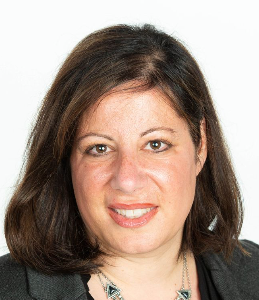
Michelle Hoffmann
Executive Director, Chicago Biomedical Consortium -
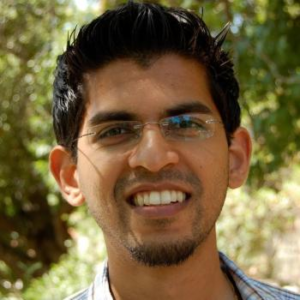
Anshul Kundaje
Assistant Professor of Genetics and Computer Science at Stanford University -
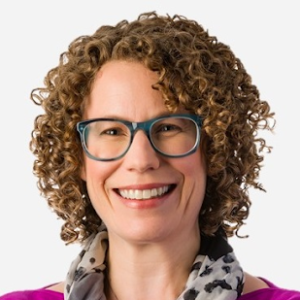
Jennifer Listgarten
Professor in the Department of Electrical Engineering and Computer Science, and Center for Computational Biology, at the University of California, Berkeley -
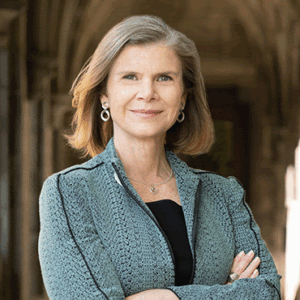
Angela V. Olinto
Dean, Physical Sciences Division; Albert A. Michelson Distinguished Service Professor, Department of Astronomy and Astrophysics; Enrico Fermi Institute; and the College -
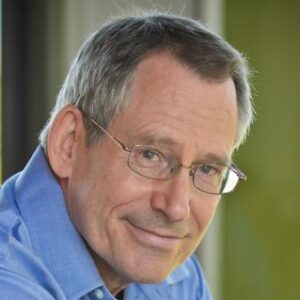
John Preskill
Richard P. Feynman Professor of Theoretical Physics at Caltech -
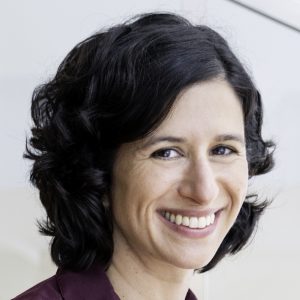
Samantha Riesenfeld
Assistant Professor, Molecular Engineering and of Genetic Medicine -
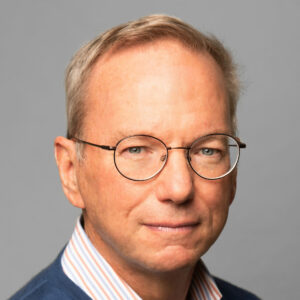
Eric Schmidt
Co-Founder, Schmidt Futures; Former CEO & Chairman, Google -
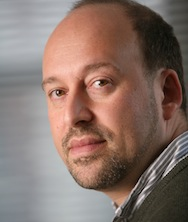
Gavin Schmidt
Director of Goddard Institute for Space Studies, NASA -
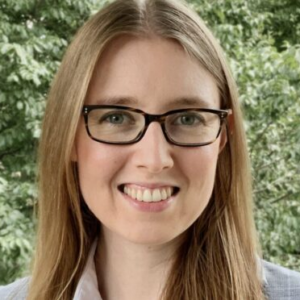
Phiala Shanahan
Associate Professor of Physics at the Massachusetts Institute of Technology -
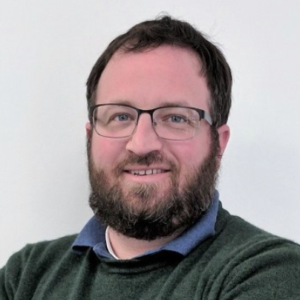
Evan Sparks
Chief Product Officer for Artificial Intelligence, Hewlett Packard Enterprise -
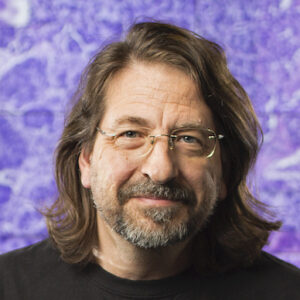
Rick Stevens
Associate Laboratory Director, Computing, Environment and Life Sciences, Argonne; Professor of Computer Science, University of Chicago -

Jesse Thaler
Professor of Physics at the Massachusetts Institute of Technology -

Caroline Uhler
Professor of Electrical Engineering and Computer Science at the Massachusetts Institute of Technology -
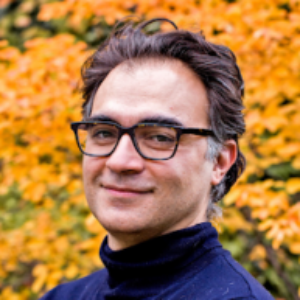
Vincenzo Vitelli
Professor, Dept. of Physics, James Franck Institute, and the College -

Max Welling
Research Chair in Machine Learning at the University of Amsterdam -

Rebecca Willett
Faculty Director of AI, Data Science Institute; Professor, Statistics, Computer Science, and the College -
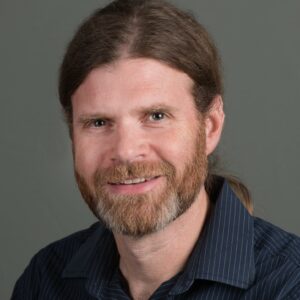
David Freedman
Professor of Neurobiology, Committees on Computational Neuroscience and Neurobiology
Anima Anandkumar is Bren Professor at Caltech and Senior Director of AI Research at NVIDIA. She received her B.Tech from the Indian Institute of Technology Madras, and her Ph.D. from Cornell University. She did her postdoctoral research at MIT and an assistant professorship at the University of California Irvine. She has received several honors such as the IEEE fellowship, Alfred. P. Sloan Fellowship, NSF Career Award, and Faculty Fellowships from Microsoft, Google, Facebook, and Adobe. She is part of the World Economic Forum’s Expert Network.
Prof. Elizabeth Barnes is a Professor of Atmospheric Science at Colorado State University. She joined the CSU faculty in 2013 after obtaining dual B.S. degrees (Honors) in Physics and Mathematics from the University of Minnesota, obtaining her Ph.D. in Atmospheric Science from the University of Washington, and spending a year as a NOAA Climate & Global Change Fellow at the Lamont-Doherty Earth Observatory. Professor Barnes’ research is largely focused on climate variability and change and the data analysis tools used to understand them. Her current work is heavily focused on developing and applying explainable machine learning methods to better understand and anticipate climate impacts in the coming decades to support humanity as we navigate our turbulent future. Dr. Barnes received the American Geophysical Union (AGU) Macelwane Medal and became a Fellow of the AGU in 2021, received the AGU Turco Lectureship in Future Horizons in Climate Science in 2020, and the American Meteorological Society Clarence Leroy Meisinger Early Career Award in 2020.
John Chodera is an experienced computational chemist, and an Associate Member at Sloan Kettering Institute for Cancer Research (MSKKC). His research combines the disciplines of statistical mechanics, biomolecular simulation, and biophysical measurements to develop quantitative models for predicting and understanding how small molecules selectively bind biomolecular targets, how binding modulates conformation and function, and how mutations can perturb drug binding affinities to cause drug resistance.
John has authored over 75 articles in peer-reviewed journals, which have collectively received over 12,500 literature citations. John has also received numerous awards including the BIH Einstein Visiting Fellowship, Silicon Therapeutics Open Science Fellowship, Louis V. Gerstner Young Investigator Award, QB3-Berkeley Distinguished Postdoctoral Fellowship, IBM Predoctoral Fellowship, the Frank M. Goyan Award for outstanding work in Physical Chemistry at UCSF, and a HHMI Predoctoral Fellowship.
John holds a B.S. in Biology from Caltech and a Ph.D. in Biophysics from the University of California, San Francisco. He completed postdoctoral studies at Stanford University and at University of California, Berkeley as a QB3 Fellow.
Jai is President, Partner and Co-Founder at Sapphire Ventures. He invests in startups that he believes are developing ground-breaking products and are on their way to becoming Companies of Consequence. He has more than 15 years of investment experience and has helped multiple companies innovate their product and marketing strategies in order to become market leaders. 13 of his investments have IPO’ed while 17 have been acquired.
As the Executive Vice President for Science, Innovation, National Laboratories, and Global Initiatives, Juan de Pablo helps drive and support the expanding reach of the University’s science, technology, and innovation efforts, along with their connection to policy and industry. He identifies and shapes emerging strategic scientific and technological initiatives, and provides oversight of entrepreneurship and innovation activities at the University’s Polsky Center for Entrepreneurship and Innovation. He also works with faculty, deans, and administrators to build global academic partnerships and international research collaborations while overseeing the University’s international centers. Juan de Pablo provides leadership for the University’s stewardship of two U.S. Department of Energy National Laboratories — Argonne and Fermilab — as institutions to advance science and technology in support of the nation’s interest. He collaborates with other leaders in research and innovation to build programs and links between and among the national laboratories and the University, as well as the Marine Biological Laboratory. A prominent molecular engineer, de Pablo focuses his research on polymers, biological macromolecules such as proteins and DNA, glasses, and liquid crystals, a diverse class of materials widely used in many fields of engineering.
Andrew is co-founder and CEO of Cerebras Systems. He is an entrepreneur dedicated to pushing boundaries in the compute space. Prior to Cerebras, he co-founded and was CEO of SeaMicro, a pioneer of energy-efficient, high-bandwidth microservers. SeaMicro was acquired by AMD in 2012 for $357M. Before SeaMicro, Andrew was the Vice President of Product Management, Marketing and BD at Force10 Networks which was later sold to Dell Computing for $800M. Prior to Force10 Networks, Andrew was the Vice President of Marketing and Corporate Development at RiverStone Networks from the company’s inception through IPO in 2001. Andrew holds a BA and an MBA from Stanford University.
I lead an interdisciplinary computational and theoretical research group working on materials self-assembly, biomolecular simulation, viral dynamics, and vaccine design. My doctoral training provided me with expertise in molecular simulation, statistical mechanics, and machine learning, in which I developed new nonlinear machine learning approaches to study the conformations and dynamics of proteins, polymers, and confined water. During my post-doctoral fellowship, I acquired knowledge and skills in immunology and viral dynamics, and developed new computational tools for structure-free prediction of antibody binding sites, and the computational design of HIV vaccines using statistical mechanical principles.
Since establishing my independent research program in 2012, I have combined these expertise to establish a dynamic research program in computational materials science and computational virology for which I have attracted over $2.9M in federal research funding, established a strong publication record (60+ papers) in leading journals, and have been recognized with a number of national awards including a 2018 Royal Society of Chemistry Molecular Systems Design and Engineering Emerging Investigator Award, 2017 Dean’s Award for Excellence in Research, 2016 AIChE CoMSEF Young Investigator Award, 2015 ACS Outstanding Junior Faculty Award, 2014 ACS Petroleum Research Fund Doctoral New Investigator Award, 2013 NSF CAREER Award, and I was named the 2013 Institution of Chemical Engineers North America “Young Chemical Engineer of the Year”. I am engaged and active within my professional organization serving on the AIChE Area 1a Programming Committee and as CoMSEF Liaison Director, and in organizing multiple scientific sessions at our national meetings. In addition to independent theoretical work, my research interests lead naturally to close collaboration with experimentalists and clinicians, teaching me the power of mutually reinforcing theoretical and experimental work and the importance of effective communication, planning, budgeting, teamwork and leadership.
Professor Morteza (Mory) Gharib researches conventional fluid dynamics and aeronautics including vortex dynamics, active and passive flow control, nano/micro fluid dynamics, autonomous flight and underwater systems, as well as advanced flow-imaging diagnostics. The Gharib group is further interested in biomechanics and medical engineering via the study of fluid dynamics within the human cardiovascular system and opthamology, as well as the development of medical devices.
Michelle Hoffmann, Ph.D. has been serving since August of 2021 as the Executive Director of the Chicago Biomedical Consortium (CBC), a consortium of biomedical researchers across Northwestern, the University of Illinois at Chicago, and the University of Chicago that is generously supported by the Searle Funds at The Chicago Community Trust. The CBC’s mission is to stimulate collaboration among scientists to accelerate discovery that will transform biomedical research and improve the health of humankind. In her time as Executive Director, Dr. Hoffmann has reorganized the CBC to train local PhD talent in the business of early science commercialization while developing a process to find and fund the most promising biopharma applications of Chicago university science. Prior to this role, from 2019-2021, Dr. Hoffmann was the Senior Vice President of Deep Tech at P33, a privately funded nonprofit charged with elevating Chicagoland’s innovation economy and driving inclusive economic growth.
Hoffmann spent 15 years helping life sciences companies grow, most recently as a senior vice president at Boston-based Back Bay Life Science Advisors, an integrated strategy and investment firm to global life science companies and their investors. During her time at Back Bay, Hoffmann led projects for large, publicly traded companies, as well as small, private, venture-backed health care and life sciences companies. Hoffmann also worked closely with Back Bay’s investment team on two large transactions: an epigenetics platform that was sold to Gilead Pharmaceuticals for $65M and an agent to combat acute kidney injury that was acquired by AbbVie for $110M.
Hoffmann earned a PhD in molecular and cellular biology from the University of California Berkeley and completed a postdoctoral fellowship at Brandeis University.
Anshul Kundaje is an Assistant Professor of Genetics and Computer Science at Stanford University. His primary research area is large-scale computational regulatory genomics. The Kundaje lab specializes in developing statistical and machine learning methods for large-scale integrative analysis of heterogeneous, high-throughput functional genomic and genetic data, learning predictive regulatory network models across individuals, cell-types and species, and improving detection and interpretation of natural and disease-associated genetic variation.
Prof. Jennifer Listgarten is a Professor in the Department of Electrical Engineering and Computer Science, and Center for Computational Biology, at the University of California, Berkeley. She is also a member of the steering committee for the Berkeley AI Research (BAIR) Lab, and a Chan Zuckerberg investigator. From 2007 to 2017 she was at Microsoft Research. She completed her Ph.D. in the machine learning group in the Department of Computer Science at the University of Toronto, located in her hometown. She has two undergraduate degrees, one in Physics and one in Computer Science, from Queen’s University in Kingston, Ontario. Jennifer’s research interests are broadly at the intersection of machine learning, applied statistics, molecular biology and science.
Angela V. Olinto is Dean of the Division of the Physical Sciences and the Albert A. Michelson Distinguished Service Professor in the Department of Astronomy and Astrophysics, the Kavli Institute for Cosmological Physics, and the Enrico Fermi Institute at the University of Chicago. She previously served as Chair of the Department of Astronomy and Astrophysics from 2003 to 2006 and again from 2012 to 2017.
Olinto is best known for her contributions to the study of the structure of neutron stars, primordial inflationary theory, cosmic magnetic fields, the nature of the dark matter, and the origin of the highest energy cosmic rays, gamma-rays, and neutrinos. She is the Principal Investigator of the POEMMA (Probe Of Extreme Multi-Messenger Astrophysics) space mission and the EUSO (Extreme Universe Space Observatory) on a super pressure balloon (SPB) mission, and a member of the Pierre Auger Observatory, all designed to discover the origin of the highest energy cosmic particles, their sources, and their interactions.
Olinto received a B.S. in Physics from the Pontifícia Universidade Católica of Rio de Janeiro, Brazil in 1981, and Ph.D. in Physics from the Massachusetts Institute of Technology in 1987. She is a fellow of the American Physical Society and of the American Association for the Advancement of Science, was a trustee of the Aspen Center for Physics, and has served on many advisory committees for the National Academy of Sciences, Department of Energy, National Science Foundation, and the National Aeronautics and Space Administration. She received the Chaire d’Excellence Award of the French Agence Nationale de Recherche in 2006, the Llewellyn John and Harriet Manchester Quantrell Award for Excellence in Undergraduate Teaching in 2011, and the Faculty Award for Excellence in Graduate Teaching in 2015 at the University of Chicago.
John Preskill is the Richard P. Feynman Professor of Theoretical Physics at the California Institute of Technology, and Director of the Institute for Quantum Information and Matter at Caltech. Preskill received his Ph.D. in physics in 1980 from Harvard, and joined the Caltech faculty in 1983. Preskill began his career in particle physics and cosmology, but now his main research area is quantum information science. He’s interested in how to build and use quantum computers, and in how our deepening understanding of quantum information can illuminate issues in fundamental physics. Preskill is a member of the National Academy of Sciences, a fellow of the American Physical Society, and a two-time recipient of the Associated Students of Caltech Teaching Award. He has mentored more than 60 Ph.D. students and more than 60 postdoctoral scholars at Caltech, many of whom are now leaders in their research areas. You can follow him on Twitter @preskill.
Samantha Riesenfeld is an Assistant Professor of Molecular Engineering and of Genetic Medicine, a member of the Committee on Immunology, an Associate Member of the Comprehensive Cancer Center, and co-director of the new Computational and Systems Immunology PhD track in Immunology and Molecular Engineering. She leads an interdisciplinary research program focused on developing and applying genomics-based machine learning approaches to investigate the cellular components, transcriptional circuitry, and dynamics underlying complex biological systems, with a special interest in inflammatory immune responses and solid tumor cancer.
Eric Schmidt is an accomplished technologist, entrepreneur, and philanthropist. As Google’s Chief Executive Officer, he pioneered the company’s transformation from a Silicon Valley startup to a global leader in technology. He served there as Chief Executive Officer and Chairman from 2001-2011, Executive Chairman from 2011-2018, and most recently as Technical Advisor. Under his leadership, Google dramatically scaled its infrastructure and diversified its product offerings while maintaining a strong culture of innovation.
Eric currently serves as Chair of the Board of Directors of The Broad Institute and on the board of the Mayo Clinic and the Advisory Board at UC Berkeley, among others. He is a Gulfstream pilot, and his philanthropic efforts through The Schmidt Family Foundation and the Schmidt Ocean Institute focus on climate change, including the support of ocean and marine life studies at sea, as well as education and cutting-edge research and technology in natural sciences and engineering.
Additionally, he is the co-founder of Schmidt Futures, which bets early on exceptional people making the world better, applying science and technology thoughtfully, and bringing people together across fields. In 2019, Eric and his wife Wendy announced a new $1 billion philanthropic commitment to identify and support talent across disciplines and around the globe, beginning with the launch of Rise, a partnership with Schmidt Futures and the Rhodes Trust to increase opportunities for extraordinary young people and empower them to serve others. He also serves as Chairman of Steel Perlot, an AI and analytics company of companies.
Most recently, he founded the Special Competitive Studies Project, a non-profit initiative focused on strengthening America’s long-term AI and technological competitiveness in national security, the economy, and society.
Eric is the co-author of the bestselling books The Age of AI: And Our Human Future, The New Digital Age, How Google Works, and Trillion Dollar Coach: The Leadership Playbook of Silicon Valley’s Bill Campbell. He is also the host of “Reimagine with Eric Schmidt,” a series of conversations with leaders exploring how society can build a brighter future after the global coronavirus pandemic.
Dr. Gavin Schmidt is the Director of GISS and Principal Investigator for the GISS ModelE Earth System Model, with primary interests in understanding past, present and future climate and the impacts of multiple drivers of climate change, including solar irradiance, atmospheric chemistry, aerosols, and greenhouse gases. In 2021 he served as the acting Senior Climate Adviser to the NASA Administrator. He has over 150 peer-reviewed publications and was the author with Joshua Wolfe of “Climate Change: Picturing the Science” in 2009. In 2011 he was the inaugural recipient of the American Geophysical Union (AGU) Climate Communication Prize and is a fellow of the AGU and American Association for the Advancement of Science. His 2014 TED Talk on climate modeling has been viewed over a million times.
Prof. Philia Shanahan’s research interests are focussed around theoretical nuclear and particle physics. In particular, she works to understand the structure and interactions of hadrons and nuclei from the fundamental (quark and gluon) degrees of freedom encoded in the Standard Model of particle physics. Shanahan’s recent work has focused in particular on the role of gluons, the force carriers of the strong interactions described by Quantum Chromodynamics (QCD), in hadron and nuclear structure; using analytic tools and high performance supercomputing, she recently achieved the first calculation of the gluon structure of light nuclei, making predictions which will be testable in new experiments proposed at Jefferson National Accelerator Facility and at the planned Electron-Ion Collider. She has also undertaken extensive studies of the role of strange quarks in the proton and light nuclei which sharpen theory predictions for dark matter cross-sections in direct detection experiments. To overcome computational limitations in QCD calculations for hadrons and in particular for nuclei, Prof. Shanahan is pursuing a program to integrate modern machine learning techniques in computational nuclear physics studies.
Evan Sparks is Chief Product Officer for Artificial Intelligence at Hewlett Packard Enterprise. Prior to its acquisition by HPE, Evan was co-founder and CEO of Determined AI. At Determined and HPE, his group builds software that makes machine learning engineers and data scientists fantastically more productive. While earning his PhD in Computer Science in Berkeley’s AMPLab, he contributed to the design and implementation of much of the large-scale machine learning ecosystem around Apache Spark, including MLlib and KeystoneML.
Prior to Berkeley, Evan worked in quantitative finance and web intelligence. He also holds an AB in Computer Science from Dartmouth College.
Rick Stevens is the Associate Laboratory Director of the Computing, Environment and Life Sciences Directorate at Argonne National Laboratory, and a Professor of Computer Science at the University of Chicago, with significant responsibility in delivering on the U.S. national initiative for Exascale computing and developing the DOE initiative in Artificial Intelligence (AI) for Science.
At Argonne, he is leading the Laboratory’s AI for Science initiative and currently focusing on high-performance computing systems which includes leading a significant collaboration with Intel and Cray to launch Argonne’s first exascale computer, Aurora 21, which will pursue some of the farthest-reaching science and engineering breakthroughs ever achieved with supercomputing, as well as a partnership with Cerebras Systems to bring hardware on site to advance the massive deep learning experiments being pursued at Argonne for basic and applied science and medicine with supercompute-scale AI.
Prof. Stevens is a member of the American Association for the Advancement of Science and has received many national honors for his research, including an R&D 100 award.
Jesse Thaler is a theoretical particle physicist who fuses techniques from quantum field theory and machine learning to address outstanding questions in fundamental physics. His current research is focused on maximizing the discovery potential of the Large Hadron Collider (LHC) through new theoretical frameworks and novel data analysis techniques. Prof. Thaler is an expert in jets, which are collimated sprays of particles that are copiously produced at the LHC, and he studies the substructure of jets to enhance the search for new phenomena and illuminate the dynamics of gauge theories. Prof. Thaler joined the MIT Physics Department in 2010, and is currently a Professor in the Center for Theoretical Physics. In 2020, he became the inaugural Director of the NSF Institute for Artificial Intelligence and Fundamental Interactions.
Caroline Uhler is a full professor in the Department of Electrical Engineering and Computer Science and the Institute for Data, Systems, and Society at MIT. In addition, she is a core institute member at the Broad, where she co-directs the Eric and Wendy Schmidt Center. She holds an MSc in mathematics, a BSc in biology, and an MEd all from the University of Zurich. She obtained her PhD in statistics from UC Berkeley in 2011 and then spent three years as an assistant professor at IST Austria before joining MIT in 2015. She is a Simons Investigator, a Sloan Research Fellow, and an elected member of the International Statistical Institute. In addition, she received an NIH New Innovator Award, an NSF Career Award, a Sofja Kovalevskaja Award from the Humboldt Foundation, and a START Award from the Austrian Science Foundation. Her research lies at the intersection of machine learning, statistics, and genomics, with a particular focus on causal inference, representation learning, and gene regulation.
Vincenzo Vitelli’s research interests lie in condensed matter theory broadly defined. Recent work encompasses active matter, machine learning, metamaterials, topological insulators, hydrodynamics, dynamical systems, liquid crystals, granular media, glasses and polymers. Often the rich phenomenology of these many body systems arises from the interplay between strong non-linearities, disorder and physics far from equilibrium that he explores using analytical and numerical tools in close collaboration with experimentalists.
Dr. Max Welling is a research chair in Machine Learning at the University of Amsterdam and a Distinguished Scientist at MSR. He is a fellow at the Canadian Institute for Advanced Research (CIFAR) and the European Lab for Learning and Intelligent Systems (ELLIS) where he also serves on the founding board. His previous appointments include VP at Qualcomm Technologies, professor at UC Irvine, postdoc at U. Toronto and UCL under supervision of prof. Geoffrey Hinton, and postdoc at Caltech under supervision of prof. Pietro Perona. He finished his PhD in theoretical high energy physics under supervision of Nobel laureate Prof. Gerard ‘t Hooft.
Rebecca Willett is a Professor of Statistics and Computer Science at the University of Chicago. She completed her PhD in Electrical and Computer Engineering at Rice University in 2005 and was an Assistant then tenured Associate Professor of Electrical and Computer Engineering at Duke University from 2005 to 2013. She was an Associate Professor of Electrical and Computer Engineering, Harvey D. Spangler Faculty Scholar, and Fellow of the Wisconsin Institutes for Discovery at the University of Wisconsin-Madison from 2013 to 2018. Prof. Willett received the National Science Foundation CAREER Award in 2007, was a member of the DARPA Computer Science Study Group 2007-2011, and received an Air Force Office of Scientific Research Young Investigator Program award in 2010. Prof. Willett has also held visiting researcher positions at the Institute for Pure and Applied Mathematics at UCLA in 2004, the University of Wisconsin-Madison 2003-2005, the French National Institute for Research in Computer Science and Control (INRIA) in 2003, and the Applied Science Research and Development Laboratory at GE Medical Systems (now GE Healthcare) in 2002. Her research interests include network and imaging science with applications in medical imaging, wireless sensor networks, astronomy, and social networks. She is also an instructor for FEMMES (Females Excelling More in Math Engineering and Science; news article here) and a local exhibit leader for Sally Ride Festivals. She was a recipient of the National Science Foundation Graduate Research Fellowship, the Rice University Presidential Scholarship, the Society of Women Engineers Caterpillar Scholarship, and the Angier B. Duke Memorial Scholarship.
David Freedman is a Professor in the Department of Neurobiology and the Neuroscience Institute at the University of Chicago. He has a broad background in cognitive, systems, and computational neuroscience, with expertise in electrophysiological approaches for recording neuronal population activity in awake non-human primates trained to perform complex behavioral tasks which require learning, memory, and decision-making. His research program also has a major focus on artificial intelligence (AI) approaches for studying neuroscience-related questions in artificial neural networks, and on designing novel biologically-inspired AI approaches. His research, supported by NIH, NSF, DOD, and private foundations, investigates the neuronal computations of higher-order perceptual and cognitive functions. Following graduate and postdoctoral training at MIT and Harvard Medical School, he established his laboratory at the University of Chicago in 2008, from which he has trained numerous graduate students and postdoctoral scholars that have successfully established their own independent research careers. His work has been recognized by the Troland Research Award from the National Academy of Sciences, the Vannevar Bush Faculty Fellowship from the Department of Defense, the NSF Career Award, and Faculty Fellowship Awards from the Sloan, McKnight, and Brain Research Foundations. In 2018, he received the University of Chicago Faculty Award for Excellence in Graduate Teaching and Mentoring.
-
-
Tuesday, March 28th
-
Agenda
-
8:45 am - 9:00 am: Welcome Address
Paul Alivisatos, President of the University of Chicago; John D. MacArthur Distinguished Service Professor in the Dept. of Chemistry
-
9:00 am - 9:45 am: AI+Science - An Overview of the Field
Rick Stevens, Associate Laboratory Director, Computing, Environment and Life Sciences, Argonne; Professor of Computer Science, University of Chicago
-
9:45 am - 11:45 am: Climate Science and AI
9:45 am: “Machine Learning in Climate Modeling: Challenges and Potential”
Gavin Schmidt, Director of Goddard Institute for Space Studies, NASA
10:30 am: BREAK
11:00 am: “Explainable AI for Climate Science: Opening the Black Box to Reveal Planet Earth”
Elizabeth Barnes, Professor of Atmospheric Science at Colorado State University
-
11:45 am - 12:30 pm: Biology and AI (Part 1)
11:45 am: “Deep learning for genomic discovery”
Anshul Kundaje, Assistant Professor of Genetics and Computer Science at Stanford University
-
12:30 pm - 1:30 pm: Lunch
-
1:30 pm - 4:00 pm: Biology and AI (Part 2)
1:30 pm: “Deciphering the immune system using single-cell genomic data”
Samantha Riesenfeld, Assistant Professor in the Pritzker School of Molecular Engineering
2:15 pm: “AI Inspired Neuroscience and Brain-Inspired AI”
David Freedman, Professor Department of Neurobiology and The College, Neuroscience Institute at the University of Chicago
3:00 pm: “How machine learning is changing protein engineering”
Jennifer Listgarten, Professor in Electrical Engineering and Computer Sciences Dept. at the University of California Berkeley
3:45 pm: BREAK
-
4:00 pm - 4:45 pm: AI Methods in Science and Engineering
“Causal Representation Learning – A Proposal”
Caroline Uhler, Professor of Electrical Engineering and Computer Science at the Massachusetts Institute of Technology
-
5:15 pm - 6:30 pm: Reception and Student Poster Session
-
8:45 am - 9:00 am: Welcome Address
-
Agenda
-
Wednesday, March 29th
-
Agenda
-
9:00 am - 12:30 pm: Physics and AI (Part 1)
9:00 am: “Provably-exact AI for first-principles calculations of the structure of matter”
Phiala Shanahan, Associate Professor of Physics at the Massachusetts Institute of Technology
9:45 am: “Learning in a quantum world”
John Preskill, Richard P. Feynman Professor of Theoretical Physics at the California Institute of Technology
10:30 am: BREAK
11:00 am: “The Hidden Geometry of Particle Collisions”
Jesse Thaler, Professor of Physics at the Massachusetts Institute of Technology
11:45 am: “Learning models from biological data”
Vincenzo Vitelli, Professor, James Franck Institute and Dept. of Physics at the University of Chicago
-
12:30 pm - 1:30 pm: Networking Lunch
-
1:30 pm - 2:15 pm: Physics and AI (Part 2)
1:30 pm: “Autonomy: from Mars to Restored Mobility”
Morteza Gharib, Hans W. Liepmann Professor of Aeronautics and Bioinspired Engineering at Caltech
-
2:15 pm - 4:15 pm: AI+Science Public Lectures
2:30 pm: “AI Accelerating Science: Neural Operators for Learning on Function Spaces”
Anima Anandkumar, Bren Professor at Caltech and Senior Director of AI Research at NVIDIA
3:15 pm: “The COVID Moonshot: Open science discovery of a novel oral SARS-CoV-2 antiviral”
John Chodera, Associate Member, Sloan Kettering Cancer Center
-
4:30 pm - 5:15 pm: Panel - AI + Science: Opportunities for Entrepreneurship and Innovation
Jai Das, Partner & Co-Founder, Sapphire Ventures
Andrew Feldman, CEO & Co-Founder, Cerebras Systems
Michelle Hoffmann, Executive Director, Chicago Biomedical Consortium
Evan Sparks, Chief Product Officer, Artificial Intelligence, Hewlett Packard Enterprise
Moderator: Juan de Pablo, Executive Vice President for Science, Innovation, National Laboratories, and Global Initiatives, University of Chicago
-
9:00 am - 12:30 pm: Physics and AI (Part 1)
-
Agenda
-
Thursday, March 30th
-
Agenda
-
9:00 am - 11:30 am: Chemistry and Materials
9:00 am: “Learning Mechanisms of Rare Events”
Aaron Dinner, Professor in the Dept. of Chemistry, James Franck Institute, and Institute for Biophysical Dynamics and Deputy Dean of Academic Affairs of the Physical Sciences Division at the University of Chicago
9:45 am: “Machine Learning for Molecules and Brains”
Max Welling, Distinguished Scientist, Microsoft Research AI4Science
10:30 am: BREAK
10:45 am: “Machine Learning-Guided Directed Evolution of Functional Proteins”
Andy Ferguson, Associate Professor of Molecular Engineering and Vice Dean of Equity, Diversity, and Inclusion in the Pritzker School of Molecular Engineering at the University of Chicago
-
11:30 am - 1245 pm: A Vision of AI and Science
11:30 am: Rebecca Willett, Faculty Director of AI, Data Science Institute; Professor, Statistics, Computer Science, and the College
12:15 pm: A fireside chat with Eric Schmidt, Co-Founder, Schmidt Futures; Former CEO and Chairman, Google, hosted by David Miller, Associate Professor, in the Dept. of Physics, Enrico Fermi Institute, and the College at University of Chicago
-
12:45 pm - 1:00 pm: Closing Remarks
Angela Olinto, Dean, Physical Sciences Division; Albert A. Michelson Distinguished Service Professor, Department of Astronomy and Astrophysics; Enrico Fermi Institute
-
9:00 am - 11:30 am: Chemistry and Materials
-
Agenda